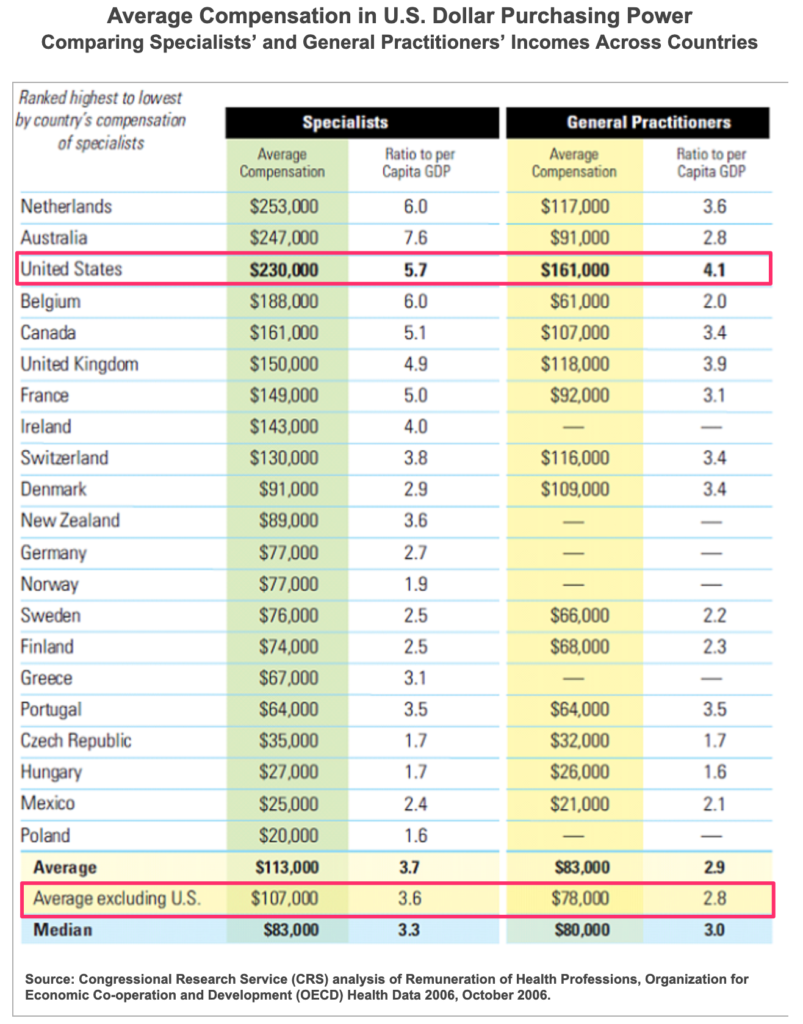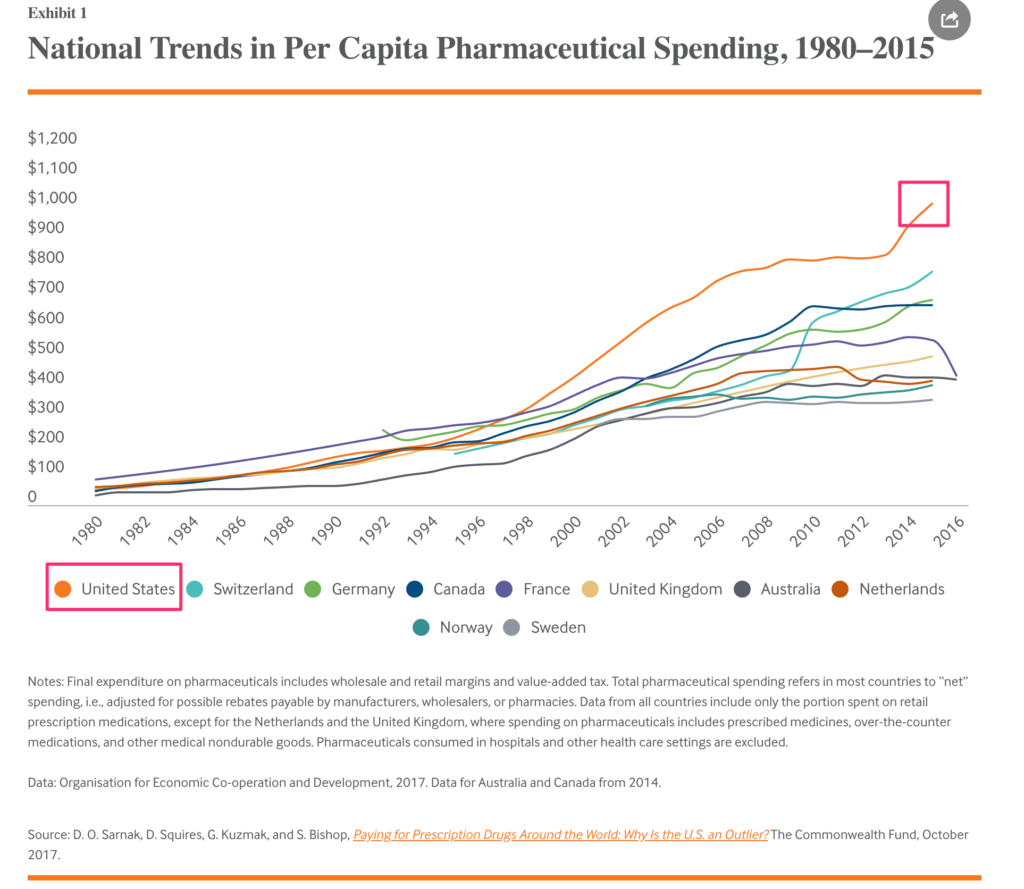Why can’t the Minnesota Legislature give consumers a MinnesotaCare buy-in option so that they have a guaranteed health insurance coverage option, more doctor choices, and much better price competition? An army of corporate lobbyists say it’s because reimbursements to the health care industry would be lower under that approach, an argument that froze legislators into inaction during the 2019 legislative session.
To be clear, if that argument prevails, Minnesota lawmakers will never contain health care costs.
To contain costs, policymakers have to lower the amount of money going to the major cost drivers — insurance overhead, doctors, nurses, medical devices and pharmaceuticals. If politicians reject a reform every time lobbyists for those cost-drivers object about getting lower reimbursements, they will never contain consumer costs.
Let’s look at one of those cost-drivers, physicians. Politicians like to complain about insurance overhead and pharmaceuticals, for very good reasons, but that’s too easy. Let’s look at the most sacred of health care’s sacred cows. Doctors have an abundance of fans, campaign donating power, and lobbyists, so politicians are especially afraid to direct cost-control efforts at them.
When you look at the long list of developed nations where physicians are paid less than in the U.S., paying less for doctors seems reasonable and doable. For example, the average specialist in the U.S. earns $230,000 per year, while the average specialist in other industrialized nations receives less than half that amount, $107,000 per year.
Remember that the next time you hear physicians and their lobbyists complaining about reimbursements being too low.

Oh and by the way, the health outcomes in those developed countries with modestly paid physicians are better than in the U.S. So don’t buy the claim or inference that better pay automatically leads to better care. It doesn’t.
And about those pharmaceuticals. American patients pay much more for pharmaceuticals than patients in many other developed nations around the world. Remember that the next time you hear lobbyists complaining about Medicare and Medicaid reimbursements being too low.

(On this front, the Minnesota Legislature needs to pass legislation to allow importation of Canadian pharmaceuticals, as I argued a while back. Florida recently passed such a bill, but Minnesota politicians remain frozen by health care lobbyists.)
A Minnesota Care buy-in option — branded as “ONECare” in Minnesota by Governor Tim “One Minnesota™” Walz — would ensure that every Minnesotan always has at least one health insurance option available to them, which is particularly important in remote rural areas. It would give them broader networks of caregivers, which again is important to Greater Minnesota residents. It would provide comprehensive benefits and a service that gets good consumer reviews. It would bring better price competition to hold down the health insurance costs. Those all would be huge benefits for hundreds of thousands of Minnesotans.
But not if Minnesota politicians get cowed into inaction every time corporate health care industry lobbyists complain about receiving lower reimbursement rates. If this group of legislators won’t do the right thing on a MinnesotaCare buy-in option, we should elect a new group who will.
